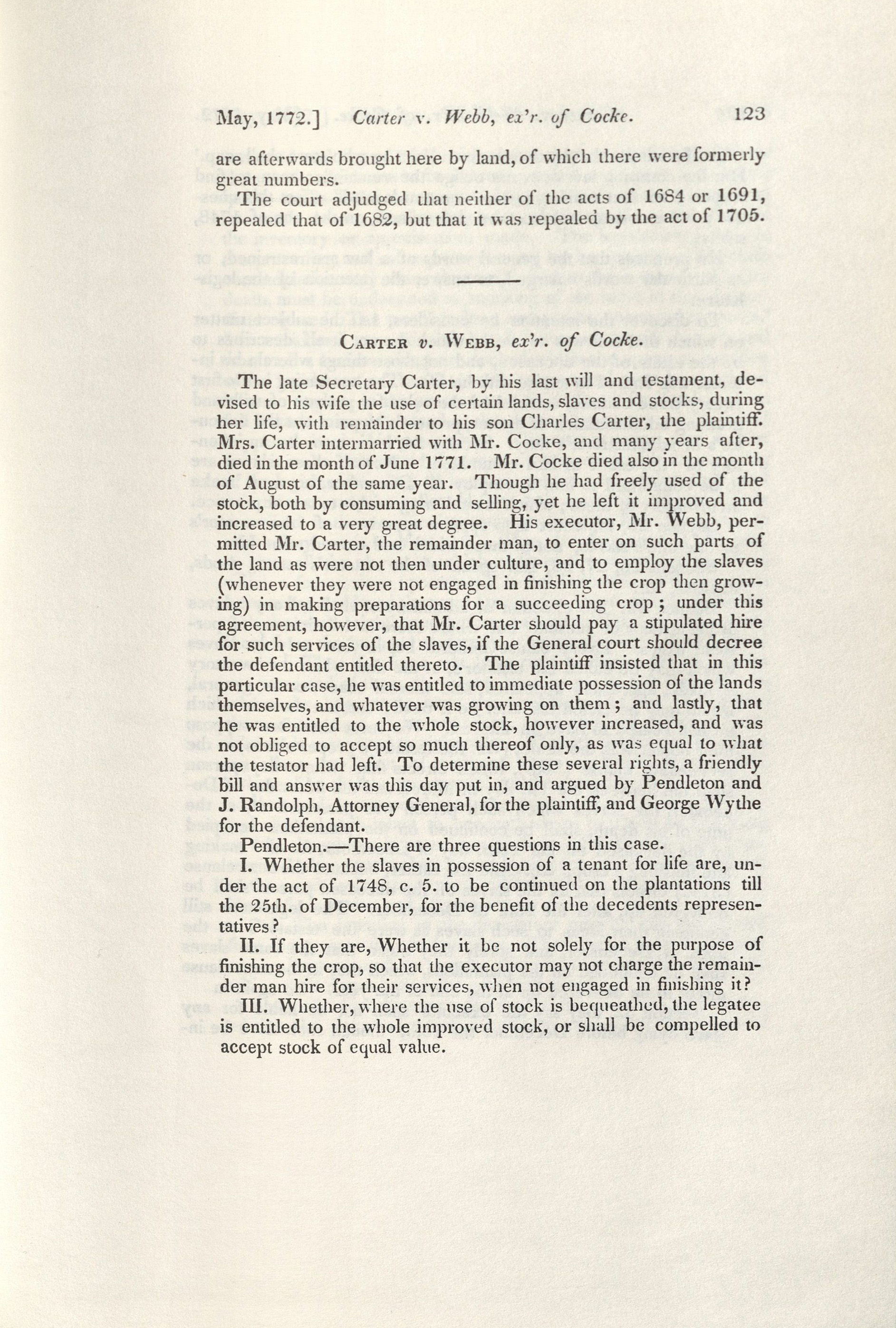Carter v. Webb

Carter v. Webb, Jefferson 123 (1772),[1] was a will dispute between the executor of a life tenant’s will and the remainderman. The remainderman wanted the improvements on the life estate, the increase in livestock, and the right to use slaves that had formerly belonged to the life tenant. The court found for the remainderman.
Edmund Pendleton and Attorney General John Randolph for the plaintiff, argued that the slaves were to be used by the executor solely for the purpose of finishing the crop. After the crop was finished, the slaves were to go to the remainderman. Pendleton argued that, because the slaves were to be kept only for the purpose of finishing the crop, they could be used by the remainderman when they were not furthering that purpose. Pendleton further argued that the remainderman is entitled to the increase because this was the intention of the deviser. Because the cattle originally devised had died many years ago, if the remainderman did not get the increase then he would get nothing.
George Wythe, for the defendant, argued that those who cause an increase are entitled to the increase, which he stated was a reformulation of the ancient rule that one should be allowed to reap what he sows. He argued that if the stock had decreased, the life tenant would owe the remainderman only the value of the original stock. From this, Wythe argued, it stands to reason that the remainderman is entitled to no more than the original amount designated in the will.
Wythe further argued that allowing the slaves to work for the remainderman would be putting them under the direction of two masters. This would create confusion in the law because determining the best use of slaves could prove very difficult.
The Court's Decision
The Court found for the plaintiff and allowed the executor to use the slaves for the purpose of finishing the crop, but required the executor to allow the remainderman to use the slaves when they were not employed for this purpose. The remainderman would not have to pay for the use of the slaves. In addition, the remainderman was to receive all of the improved stock.
See also
References
- ↑ Thomas Jefferson, Reports of cases determined in the General Court of Virginia, from 1730 to 1740 and from 1768 to 1772, ed. Thomas Jefferson Randolph. (Charlottesville: F Carr and Co., 1829; Buffalo, N.Y. : W.S. Hein, 1981): 123.